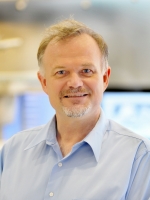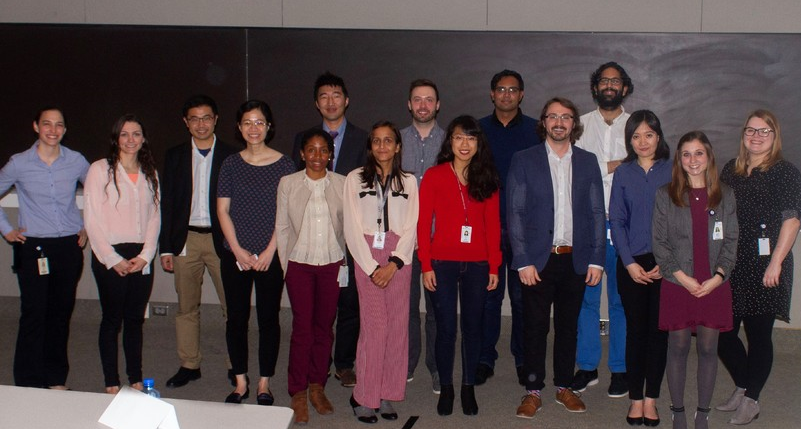A roadmap for coordinating future efforts in precision medicine
Baylor College of Medicine is part of a National Institutes of Health four-year study to harmonize and standardize clinical genetic reporting. The study has produced guidelines for future efforts in precision medicine aiming to deliver personalized treatment based on an individual’s genetics, environment and lifestyle.

The work of the NIH’s Electronic Medical Records and Genomics (eMERGE III) program coordinated activities at 11 clinical participant enrollment sites with two sequencing centers and a coordinating center to analyze the DNA of more than 25,000 participants enrolled through biobank programs. The Baylor College of Medicine Human Genome Sequencing Center was one of two Centralized Sequencing and Genotyping (CSG) Facilities, and performed the data generation, analysis and clinical data reporting for more than 14,500 of the 25,000 participants, in this phase of the program.
“Together with our colleagues in the eMERGE III Network we have built a roadmap for coordination of future efforts in precision medicine,” said Dr. Richard Gibbs, study author and director of the Human Genome Sequencing Center and professor of molecular and human genetics at Baylor College of Medicine. “All of the steps, from consenting individual participants, extracting DNA, sequencing, interpreting and returning clinical data, were coordinated and finessed.”

How it works
Participants consented to submitting a blood sample at clinical sites. Their DNA was then sequenced using a custom gene-capture panel. The work was carried out in CAP- and CLIA-accredited laboratories, and the interpreted data was returned to the participants through their physician caregivers.
The study found that approximately 200 of the 25,000 eMERGE participants required return of genetic results for the reasons given when they first enrolled for testing. In addition, there were nearly 1,300 instances where additional genetic findings unrelated to existing health conditions also were deemed reportable. These trends were consistent across the network.

“This work was made possible by developing an automated clinical reporting system, which enabled high-throughput genomic variant interpretation and report generation for the 14,500 participants served by the Baylor HGSC,” said Dr. Eric Venner, study author and assistant professor at the Human Genome Sequencing Center at Baylor.
An important component of the study was balancing the demand for research access to the genetic data with the strict requirements for privacy when returning results to patients in a clinical setting. Researchers created new methods for shielding sensitive, personal data and facilitated large-scale data analysis and access to de-identified results.
A major achievement here was the incorporation of genetic testing results into the medical record, which unfortunately has been a major roadblock until now.
“With the rate of actionable findings found here, this strongly supports the need for wider application of precision medicine efforts like eMERGE,” said Dr. David Murdock, assistant professor of molecular and human genetics and assistant director of the Human Genome Sequencing Center clinical lab at Baylor.

The methods built by the eMERGE III Network are now foundational for new projects joining precision medicine to health research, and ultimately clinical care.

“This collaborative study represents a significant step forward in global standardization of the analytical and reporting aspects of genetic testing,” said Donna Muzny, study author and assistant professor at the Human Genome Sequencing Center at Baylor.
To read all the details of this study visit the American Journal of Human Genetics.
Other participating clinical sites included Brigham and Women’s Hospital with Massachusetts General Hospital, Cincinnati Children’s Hospital Medical Center, Boston Children’s Hospital, Children’s Hospital of Philadelphia, Columbia University, Geisinger; Kaiser Permanente Washington, Mayo Clinic, Meharry Medical College, Mount Sinai School of Medicine, Northwestern University and Vanderbilt University. The second CSG was at the Broad Institute, with Partners Laboratory for Molecular Medicine. The eMERGE Coordinating Center is at Vanderbilt University and the University of Washington in Seattle.



